When the character Sandy stares into the mirror, exactly who looks back is still being figured out. Our culture, especially our media, gets thrown off whenever it has to really think about sexuality or gender, and that made for some contradictory headlines about Arcade Fire's newest video.
"Andrew Garfield Does Drag in the Arcade Fire Video for 'We Exist,'" wrote The Huffington Post.
"Andrew Garfield Plays Trans Woman in New Video," wrote The Independent, the story reaching the United Kingdom.
"Those two headlines themselves make me cringe because I know they mean two very different things," the music video's acclaimed director, David Wilson, who is gay, tells The Advocate. "It's the attention-grabbing headlines that actually detract from the emotion that we are bringing to the piece."
Arcade Fire front man Win Butler tells The Advocate that the song was one of a few written entirely while in Jamaica. And most of the album, Reflektor, has obviously Jamaican undertones. But "We Exist" is one of the "least Jamaican-sounding songs," says Butler, and is instead a reaction to the island country's notoriously antigay culture.
"There is a very kind of homophobic undercurrent, even in a lot of popular music and dancehall music, where there is a lot of violence against gay people," says Butler. "And we were in Kingston, and we went to this kind of film event and met some gay Jamaican kids and just kind of talked to them and realized that they were constantly under the threat of violence. For me, I get kind of used to being in this sort of extremely liberal bubble -- where we have Whole Foods and people are tolerant. And you can kind of trick yourself into thinking that the world is that way. For me, it was really eye-opening to hang out with these kids who, if they were going to dress differently or express who they were, there was this real tension."
If anyone hasn't heard what's happening in Jamaica, pay attention to a New Kingston judge's ruling in March. It's supposed to be considered good news that he ruled homeless LGBT youth can keep living in the public sewer system. After being kicked out of abandoned private buildings, these kids have nowhere else to go and have set up a network of living spaces and beds in the watery underground.
"For me, just meeting these kids in Jamaica and then imagining this conversation between a son and his father," says Butler, explaining how "We Exist" was born, "that was the emotional kernel."
The son tells his dad, "Daddy it's true, I'm different from you / But tell me why they treat me like this?"
When it came time to make a music video for the song, it was the band's idea to expand the "We Exist" message by having its central figure explore gender identity. A script started being written in November, and the video was finally shot in April and released this month. Butler says the video wouldn't have been made as-is without Garfield. "Once something gets on the Internet, it works its way into people's lives in a way that I think is pretty powerful," Butler says when asked about the casting. "For a gay kid in Jamaica to see the actor who played Spider-Man in that role is pretty damn powerful, in my opinion."
Butler and Wilson spoke with The Advocate Friday, immediately following more headlines about the video. "Laura Jane Grace Blasts Arcade Fire Over 'We Exist' Video," was how Rolling Stone reported it. Grace is the outspoken and well-respected trans lead singer for Against Me! and argues the music video should have starred a trans actor in the role of Sandy.
"Dear @arcadefire, maybe when making a video for a song called 'We Exist' you should get an actual 'Trans' actor instead of Spider-Man?" she wrote Thursday.
Grace is tapping into a frustration among trans people, that too few people know anyone who is trans and popular representations on television or in film (for example, Jared Leto as Rayon in Dallas Buyers Club) are played by actors who are cisgender (nontrans). Grace went so far as to compare the phenomenon to "white actors in black face."
"There was just so much thought and love that went into the video I don't personally see it as negative," Butler says of the casting, but adding "I can totally see the sensitivity of the issue."
Wilson, the director, says he had considered casting a trans person but was moved by Garfield's passion for the project after their first phone conversation. "Before I got on the call, I thought, Is this the right person -- should we be using a transgender person?" he remembers. "But then getting on the phone with Andrew, and Andrew's commitment and passion toward the project was just overwhelming. For an actor of that caliber to be that emotionally invested in a music video is just a very special thing. It just completely made sense."
Garfield was coached by well known trans musician Our Lady J, who after seeing the final video said on Twitter, "I can't watch this without crying."
The video starts with Sandy in her trailer home staring into a mirror, putting on women's clothing for the first time. "When he cuts his hair," says Butler, "he's clearly pretty tortured about it, just to have the courage to explore who he is." What happens metaphorically in the next six minutes would take exponentially longer in the real lives of trans people.
Sandy walks to a local bar, takes a seat, and is eventually invited onto the dance floor, only to be harassed by a group of men. The encounter turns violent. And Sandy tunes out of the moment and enters a dream world. Garfield had one day of dance lessons for the solo sequence that comes next, in which Sandy dances alone until running out of energy. Then she is joined by four men as backup. Wilson calls them a stand-in for the larger LGBT community. "It's the beautiful thing that happens when you come out is that so long you feel on your own and then you find a connection with other like-minded people and are part of a family, and there is strength in numbers." The dancers carry Sandy from a place of no acceptance to a huge field filled with thousands upon thousands of people who, Wilson says, "accept her just the way that she feels and just the way that she is."

That final, triumphant scene was filmed during an Arcade Fire performance at Coachella. That's when the headlines first started, as the media wondered what Garfield was doing wearing a wig, a painted-on mask, and a white dress dancing onstage as the crowd chanted, all together as one, "We Exist."
There is something powerful in what both Butler and Grace are trying to say, though from seemingly opposing sides of debate about the video. Whether trans or gay, it's important to be visible, for a lot of reasons. Legendary activist Harvey Milk was celebrated this week with his picture on a U.S. postage stamp. He famously called on people to come out and challenge a homophobic world to stand face to face with a real person. Polls repeatedly show that when voters know someone who is LGBT, it changes their views on a number of important issues, including marriage equality. Butler says his lyrics intentionally chide the religious right for trying to deny the existence of LGBT people. "They're down on their knees / Begging us please / Praying that we don't exist."
"I was coming at it from growing up in the South and growing up in Houston," he says. "The Montrose neighborhood of Houston was like the gay village, and Montrose was like a slur, and then there was gay bashing, and I remember that being in the news. This was all when I was like 12, 13. This was my first awareness of this kind of thing. I was relating to it from a small town."
Butler is as tough on the religious right, though, as he is on the greater pressure from the so-called mainstream to fit in. Another of Reflektor's least Jamaican-sounding songs, "Normal Person," takes down the mainstream tendency to label people or treat human beings like freakish others.
"Is anything as strange as a normal person? / Is anyone as cruel as a normal person?" The song concludes with Butler wailing, "I've never really ever met a normal person."
Butler remembers that growing up in Texas, "I wasn't Texan at all." He didn't identify with the don't-mess-with-Texas sense of self. On top of his "feeling like a foreigner," everyone around him was born-again Christian while he was being raised Mormon. ("My mom's family was Mormon and my dad's family was super not Mormon.") Butler played sports but was really into dance and art. He didn't fit easily into any single group. That's what "Normal Person" is about, and "We Exist" comes from someplace alike.
"'Normal Person' is talking about similar territory where it's like this overwhelming pressure to be normal and to fit into a certain mold," he says, "and you can feel that pressure because you are gay or you can feel that pressure because you're goth, or because you like wearing pink or you don't wear name-brand shoes, or you're into hip-hop and you're a white kid or you're into rock music and you're a black kid. There's just incredible socializing pressure that's on kids and adults. And I think that both of those songs are reactions to having felt that feeling. I felt that a lot in my own life. I think it's a pretty universal feeling."
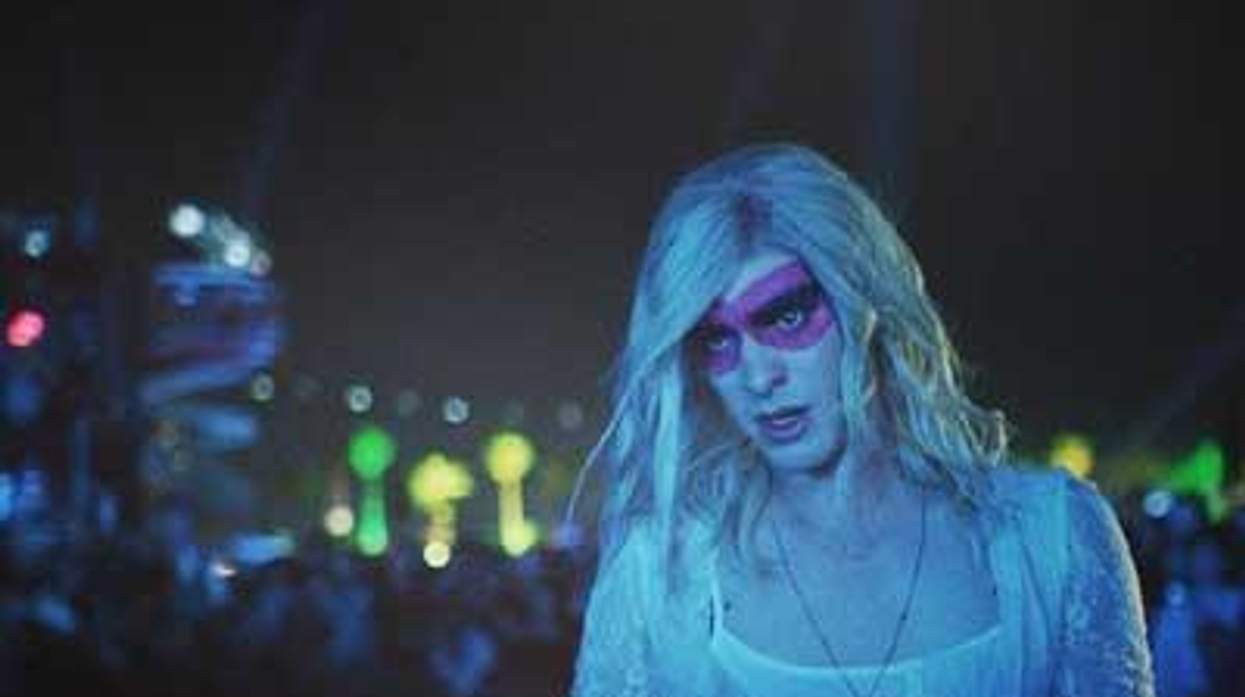

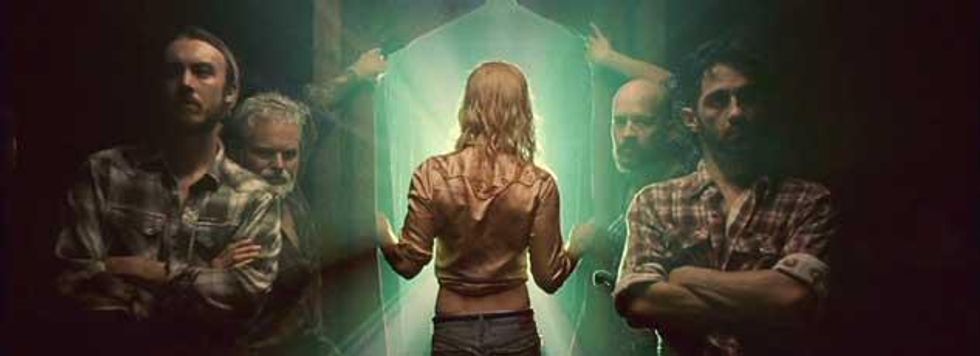
































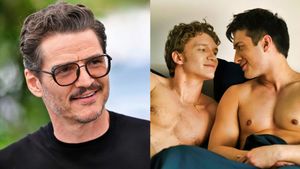







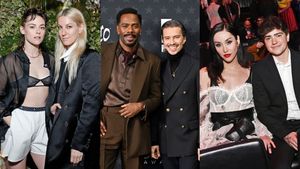

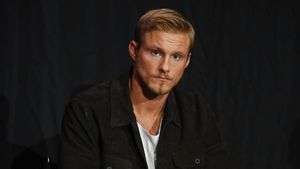










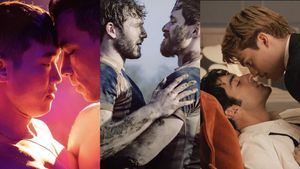




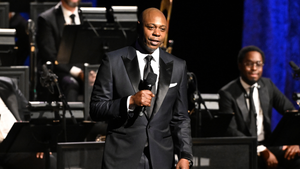

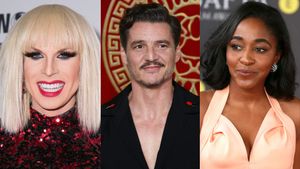

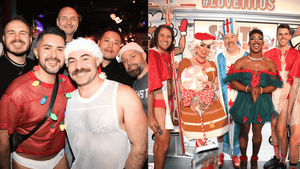


Charlie Kirk DID say stoning gay people was the 'perfect law' — and these other heinous quotes